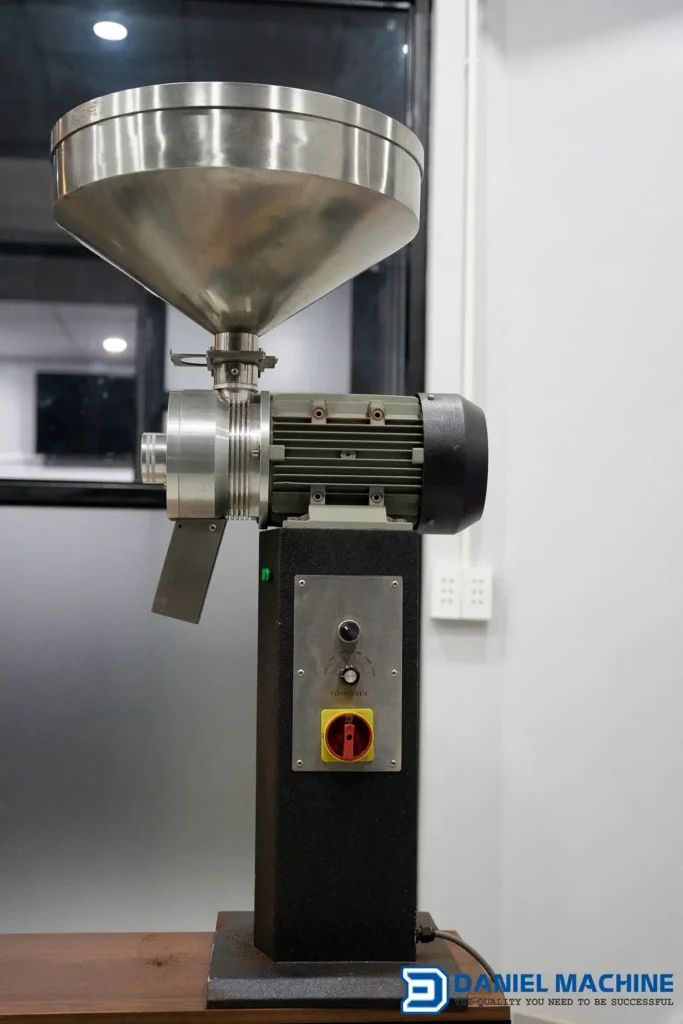How an Industrial Coffee Grinder Enhances Flavor Consistency
How an Industrial Coffee Grinder Enhances Flavor Consistency
Blog Article
Industrial Coffee Mill Guide: Increase Efficiency and Top Quality
In the affordable landscape of coffee production, choosing the right commercial coffee grinder plays a pivotal function in enhancing both efficiency and product quality. Understanding the subtleties of numerous mill types and essential functions-- such as adjustable grind setups and robust building-- can considerably influence the final taste account of the coffee. In addition, the optimization of the grinding process, paired with persistent maintenance, is vital for maintaining efficiency in time. As we discover these important components, it ends up being evident that the implications prolong past mere tools selection, impacting overall service success in manner ins which require closer examination.
Recognizing Mill Kinds
When selecting an industrial coffee mill, comprehending the numerous types readily available is vital for enhancing both flavor extraction and operational efficiency. The two key types of mills are blade mills and burr grinders.

Ultimately, selecting the appropriate type of grinder is essential to keeping quality and performance in coffee manufacturing, making it crucial for organizations to purchase top quality burr mills for optimal results.
Key Functions to Think About
Selecting an industrial coffee grinder needs careful factor to consider of several crucial functions that can substantially affect both performance and the total coffee experience. One of the main elements to assess is the grinding device. Burr grinders are typically favored over blade grinders, as they provide a constant work size, which is vital for optimum removal and taste.
Another crucial feature is the mill's ability. Relying on the volume of coffee you need to process, pick a version that can handle your demands without compromising speed or top quality. In addition, consider the grind settings used. A versatile grinder with multiple settings allows you to customize the grind dimension to various brewing techniques, enhancing the coffee's taste profile.
Assess the grinder's sound degree, especially in a busy coffee shop or production atmosphere, where extreme noise can be disruptive. Investing in a grinder that stabilizes these attributes can considerably improve both operational efficiency and the top quality of the coffee served.
Optimizing Grinding Refine
To accomplish the ideal outcomes in coffee preparation, maximizing the grinding procedure is necessary. The work dimension significantly influences removal, taste, and overall high quality of the brewed coffee.


Furthermore, checking the grinding speed can optimize the process. Slower grinding often produces see here now much less warmth, maintaining delicate tastes and scents. On the other hand, much faster grinding may create extreme warmth, negatively impacting the coffee's quality.
Maintenance and Treatment Tips
Correct maintenance and treatment of industrial coffee mills are vital for making certain optimal efficiency and durability. Routine cleaning is the foundation of upkeep; residue build-up can impact taste and grinding effectiveness. It is suggested to clean up the mill after each use, wiping down the outside and eliminating any coffee premises from the burrs.
Additionally, evaluate the grinding burrs for damage. Plain burrs can jeopardize work uniformity, so they should be replaced as needed. Industrial Coffee Grinder. Occasionally calibrating the grinder is also vital, as this keeps the wanted grind size for numerous brewing methods
Lubrication of relocating components ought to be done according to the maker's specs, as this lowers rubbing and extends the life of the devices. It is important to utilize food-grade lubricating substances to ensure safety and security and conformity with wellness regulations.
Finally, maintain the mill in a stable and completely dry setting to avoid corrosion and rust. By sticking to these maintenance and treatment pointers, operators can enhance the effectiveness of their commercial coffee grinders while making certain high-grade result and extended functional life.
Return on Financial Investment Evaluation
Assessing the return on financial investment (ROI) for commercial coffee mills is vital for organizations looking for to maximize their coffee manufacturing capacities. A thorough ROI evaluation aids establish the economic practicality of investing in high-quality grinders, enabling organizations to evaluate the initial costs against potential gains.
Assess the acquisition cost of the mill, including setup and any kind of essential adjustments to existing infrastructure. High-performance mills commonly lead to decreased grinding time and increased throughput, which can dramatically enhance efficiency.
Additionally, take into consideration the effect on item high quality. Industrial Coffee Grinder. Superior mills produce an even more constant grind dimension, which can improve taste profiles and client complete satisfaction, ultimately driving sales. By boosting the quality of the last item, services can This Site justify higher rates, bring about increased profits
Conclusion
In recap, a commercial coffee grinder plays a pivotal role in improving both efficiency and item top quality within coffee production. Eventually, the strategic investment in a dependable useful content mill adds considerably to boosted earnings and competition in the coffee sector.
In the affordable landscape of coffee production, selecting the right commercial coffee mill plays a crucial function in improving both effectiveness and product top quality. The 2 main types of grinders are blade mills and burr grinders. Within the burr grinder group, there are level burr grinders and conical burr mills, each with its advantages. Burr grinders are usually favored over blade mills, as they offer a constant grind dimension, which is crucial for optimum extraction and flavor.
In recap, an industrial coffee mill plays an essential function in boosting both efficiency and item high quality within coffee production.
Report this page